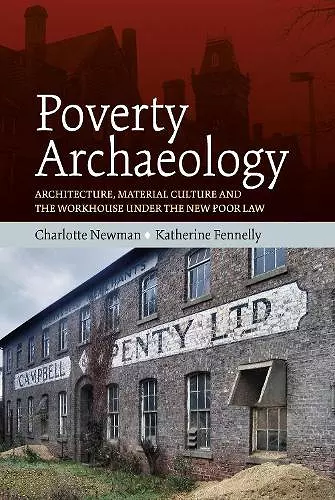Poverty Archaeology
Architecture, Material Culture and the Workhouse under the New Poor Law
Charlotte Newman author Katherine Fennelly author
Format:Hardback
Publisher:Berghahn Books
Published:13th Oct '23
Currently unavailable, and unfortunately no date known when it will be back

The Poor Laws in the United Kingdom left a built and material legacy of over two centuries of legislative provision for the poor and infirm. Workhouses represent the first centralized, state-organized system for welfare, though they maintain a notorious historical reputation. Workhouses were intended to be specialized institutions, with dedicated subdivisions for the management of different categories of inmate. Examining the workhouse provision from an archaeological perspective, the authors demonstrate the heterogeneity of the Poor Law system from a built heritage perspective. This volume forms a social archaeology of the lived experience of poverty and health in the nineteenth century.
“This is an excellent and fascinating examination of how archaeology can inform the study of poverty in nineteenth century England. The work takes as its focus the exploration of workhouses and how the analysis of the built material culture can aid our understanding of them. It exemplifies the value of using detailed case studies to interrogate and critique national models and understandings of social experience. To tell, what Hicks and Beaudry have called, ‘stories that matter’.”• Matthew Jenkins, University of York
ISBN: 9781805391098
Dimensions: unknown
Weight: unknown
174 pages